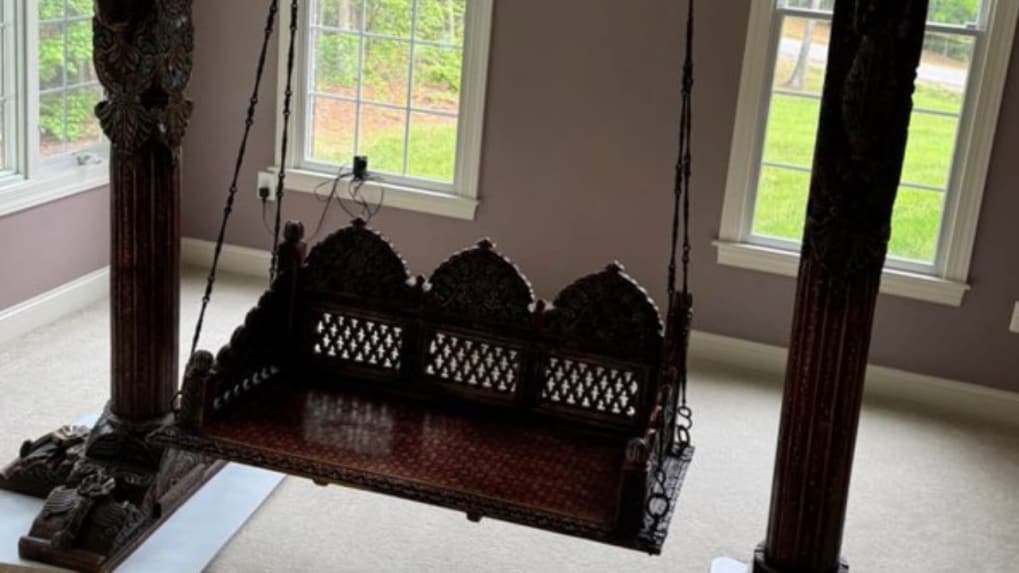'Jhoola' being rebranded as 'gothic swing' has Indians slamming cultural appropriation
An American artist who goes by the name Anne Chovy recently shared a photo on X (formerly Twitter) of an intricately carved wooden swing calling it 'gothic swing'.
ADVERTISEMENT
First it was turmeric latte, then chai tea, and most recently, Kolhapuri chappals spotted on a Prada runway — global fashion and lifestyle circles have long had a habit of rebranding Indian cultural staples. The latest in this line of misfires? The humble jhoola.
An American artist who goes by the name Anne Chovy recently shared a photo on X (formerly Twitter) of an intricately carved wooden swing, describing it as a “hand-carved antique solid wood Gothic living room swing.” But for many Indians, the image instantly struck a chord — it was unmistakably a traditional Indian jhoola, commonly found in ancestral homes across the subcontinent.
“Please do join me on the hand carved antique solid wood Gothic living room swing,” she wrote.
please do join me on the hand carved antique solid wood gothic living room swing pic.twitter.com/VJqmqI8PQG
— Anne Chovy (@AnneChovy2) July 6, 2025
The post quickly went viral, garnering over 1.4 million views. But instead of admiration, it sparked outrage. Indian users flooded the comments to inform Chovy that the so-called “Gothic” swing was, in fact, a jhoola — also known as oonjal in South India — with carvings that were distinctly Indian, many resembling Rajasthani-style craftsmanship.
Pattern of Cultural Appropriation Many social media users saw this as yet another instance of cultural appropriation — where traditional artefacts and practices are rebranded with Western terminology, stripping them of their original cultural and historical context.
“Stop stealing Indian culture, even the carvings are typical Indian Rajasthani style,” wrote one user. “Mocks Indians everywhere using stereotypes and tries to steal Indian culture at the same time.”
Another user said "This is an Indian Jhoola. How can y'all claim it as gothic?" Another user added, “Respect the culture and the artisans who have spent hours and days perfecting their craft to preserve their heritage only for you idiots to call it Gothic.”
Beyond the mislabeling, users also criticised the artist for being dismissive and rude in her replies to the backlash.
This episode joins a growing list of incidents where elements of Indian culture — from food and fashion to furniture — are exoticised, repackaged, and monetised in Western markets with little to no acknowledgement of their roots.

